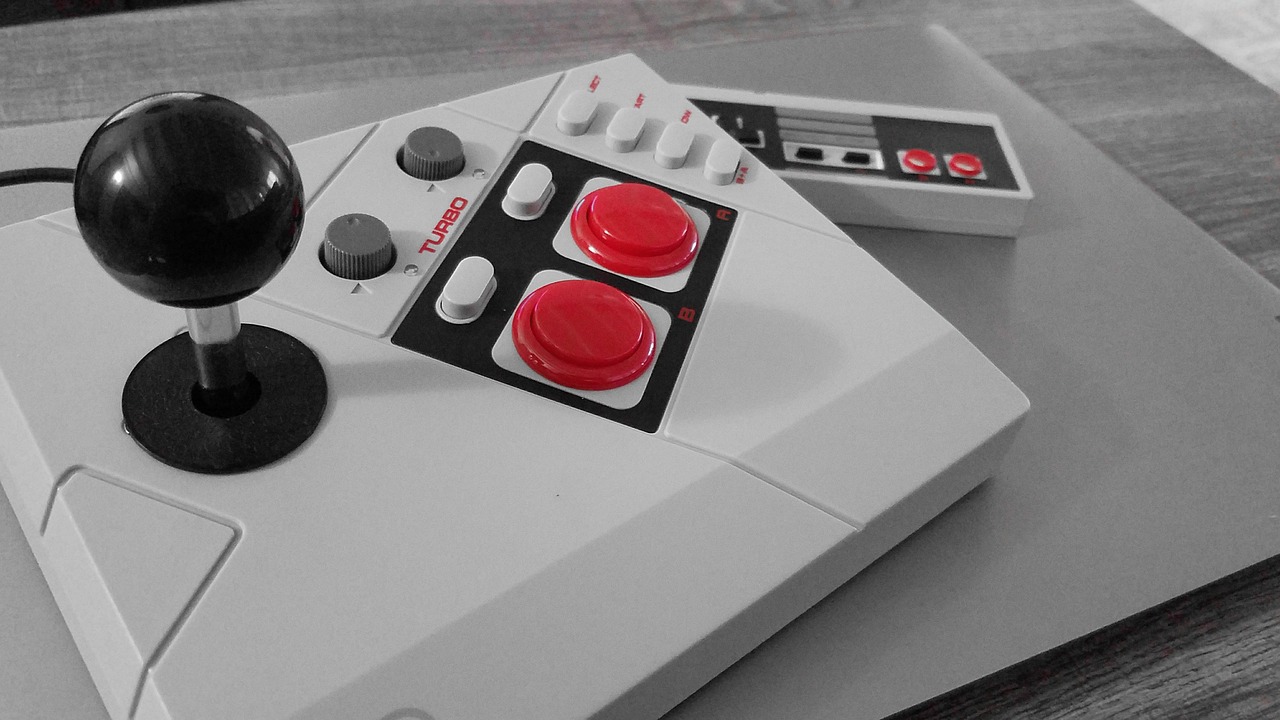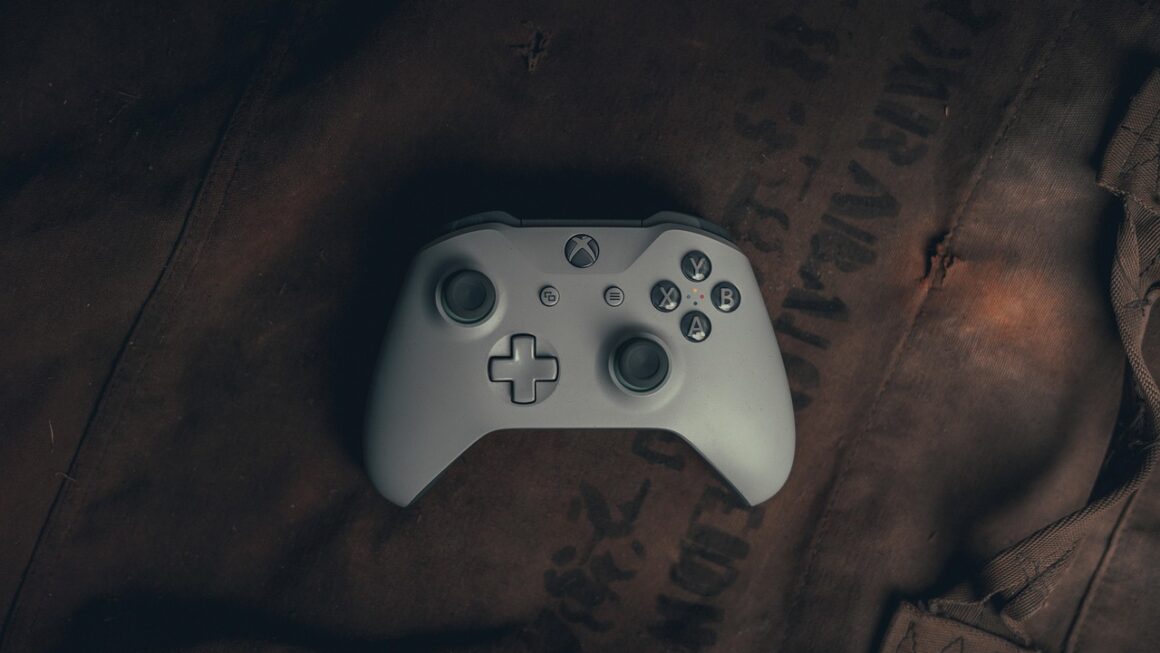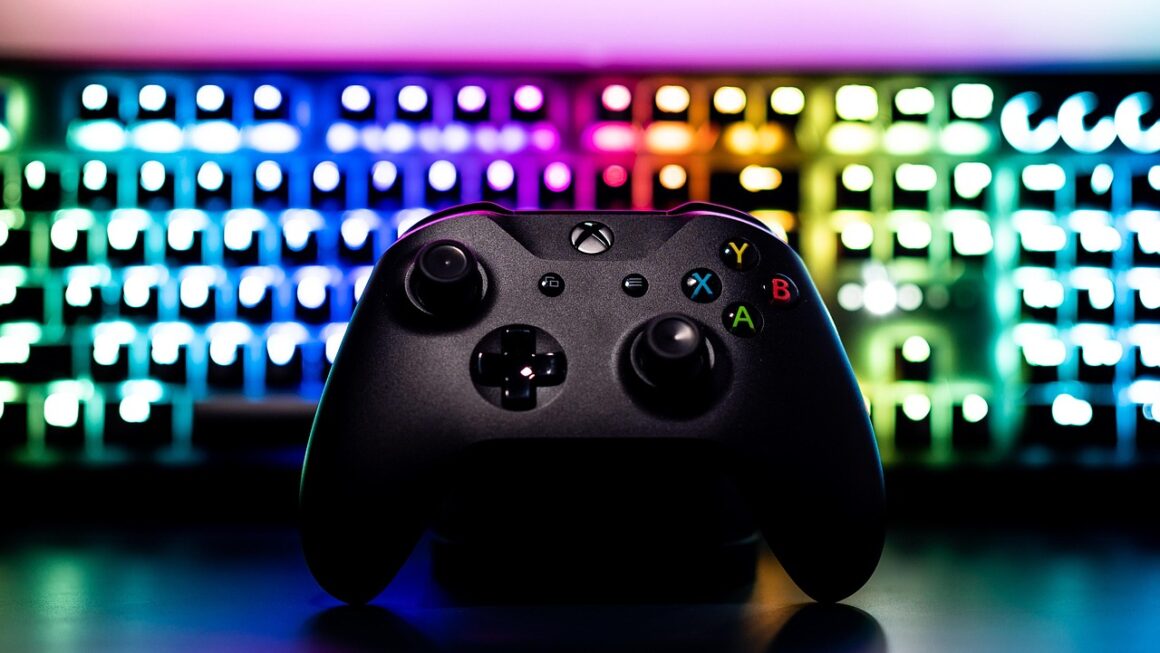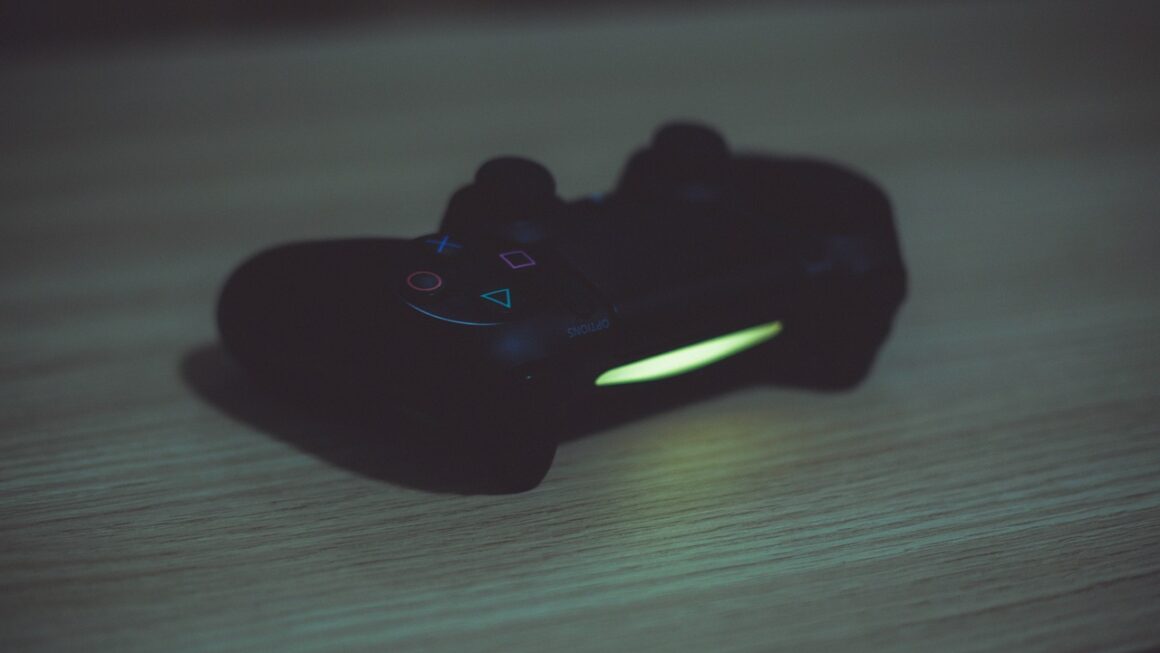Gaming laptops have revolutionized the way we experience video games. No longer confined to desktops, gamers can now enjoy high-fidelity graphics and smooth gameplay on the go. This comprehensive guide delves into the world of gaming laptops, covering everything from essential specifications to choosing the right model for your needs. Whether you’re a seasoned esports competitor or a casual gamer, understanding the nuances of gaming laptops will help you make an informed decision.
What to Look for in a Gaming Laptop
Choosing a gaming laptop can be daunting, with a wide array of models boasting different specifications and features. Understanding the key components is crucial to ensuring optimal performance and an enjoyable gaming experience.
Processor (CPU)
The CPU is the brain of your gaming laptop. It handles all the calculations needed to run the game and other applications.
- Intel vs. AMD: Both Intel and AMD offer excellent CPUs for gaming laptops. Intel’s Core i7 and i9 series, as well as AMD’s Ryzen 7 and Ryzen 9 series, are popular choices. Aim for at least a Core i7 or Ryzen 7 for smooth gaming.
- Core Count: A higher core count generally means better multitasking and performance in CPU-intensive games. Quad-core CPUs are becoming less common in gaming laptops, with six-core and eight-core CPUs providing a significant performance boost.
- Clock Speed: The clock speed (measured in GHz) determines how fast the CPU can execute instructions. Higher clock speeds generally translate to faster performance.
Example: An Intel Core i7-13700H CPU with a boost clock of up to 5.0 GHz is a great choice for gaming.
Graphics Card (GPU)
The GPU is arguably the most important component for gaming. It renders the graphics and visuals that you see on the screen.
- NVIDIA GeForce RTX vs. AMD Radeon RX: NVIDIA’s GeForce RTX series and AMD’s Radeon RX series are the dominant players in the gaming laptop GPU market. RTX cards offer features like ray tracing and DLSS (Deep Learning Super Sampling) for enhanced visual fidelity and performance. Radeon RX cards provide excellent value and performance as well.
- VRAM: Video RAM (VRAM) is the memory used by the GPU to store textures, models, and other graphical data. Higher VRAM allows you to play games at higher resolutions and with more detail. Aim for at least 6GB of VRAM, with 8GB or more being ideal.
- Example Models: NVIDIA GeForce RTX 4060, RTX 4070, and AMD Radeon RX 7700S are excellent choices for high-performance gaming.
RAM (Memory)
RAM is used to store data that the CPU and GPU need quick access to. More RAM allows you to run more applications simultaneously without slowing down your system.
- Minimum Requirement: 16GB of RAM is the minimum recommended for modern gaming laptops. 32GB is ideal for more demanding games and multitasking.
- Speed: RAM speed (measured in MHz) also affects performance. Faster RAM can improve game loading times and overall system responsiveness. DDR5 RAM is now standard on most high-end gaming laptops.
Storage
Storage affects how quickly your games and applications load. Solid-state drives (SSDs) are significantly faster than traditional hard drives (HDDs).
- SSD vs. HDD: SSDs offer much faster read and write speeds, resulting in quicker boot times, game loading, and application launch times.
- NVMe SSDs: NVMe SSDs are even faster than SATA SSDs, offering significantly improved performance.
- Storage Capacity: Aim for at least a 512GB SSD for storing your operating system, games, and applications. A 1TB SSD or larger is recommended for storing a larger game library.
Display
The display is your window into the gaming world.
- Resolution: 1920×1080 (Full HD) is a common resolution for gaming laptops, offering a good balance of performance and visual detail. 2560×1440 (QHD) and 3840×2160 (4K) displays offer even sharper visuals but require more powerful hardware to run games smoothly.
- Refresh Rate: The refresh rate (measured in Hz) determines how many times the display updates per second. A higher refresh rate results in smoother motion and less motion blur. 144Hz is the minimum recommended for gaming, with 240Hz and 360Hz options available for competitive gamers.
- Panel Type: IPS (In-Plane Switching) panels offer excellent color accuracy and wide viewing angles, making them ideal for gaming.
Key Features and Technologies
Beyond the core components, several features and technologies can enhance your gaming experience.
Cooling Systems
Gaming laptops generate a lot of heat, so effective cooling is essential to prevent throttling and maintain performance.
- Dual-Fan Cooling: Most gaming laptops feature dual-fan cooling systems to dissipate heat more effectively.
- Heat Pipes: Heat pipes transfer heat away from the CPU and GPU to the heatsinks, where it can be dissipated by the fans.
- Liquid Cooling: Some high-end gaming laptops feature liquid cooling systems for even better thermal performance.
Example: ROG Strix Scar series is known for its advanced cooling system.
Keyboard and Trackpad
A comfortable and responsive keyboard and trackpad are crucial for gaming and productivity.
- Mechanical Keyboards: Some gaming laptops feature mechanical keyboards for improved tactile feedback and responsiveness.
- Anti-Ghosting and N-Key Rollover: These features ensure that every key press is registered, even when pressing multiple keys simultaneously.
- RGB Lighting: Many gaming laptops feature customizable RGB lighting for a personalized look.
Audio
Immersive audio can significantly enhance the gaming experience.
- Built-in Speakers: Look for laptops with high-quality built-in speakers that deliver clear and balanced sound.
- Headphone Jack: A headphone jack is essential for connecting headphones or headsets.
- Audio Technologies: Some gaming laptops feature audio technologies like Dolby Atmos or DTS:X for immersive surround sound.
Connectivity
Sufficient ports are important for connecting peripherals and external displays.
- USB Ports: Look for laptops with multiple USB 3.0 or USB 3.2 ports for connecting peripherals.
- USB-C Ports: USB-C ports offer faster data transfer speeds and can also be used for charging and connecting external displays.
- HDMI Port: An HDMI port is essential for connecting an external display.
- Ethernet Port: An Ethernet port provides a wired internet connection for lower latency and more stable gaming.
Top Gaming Laptop Brands
Several brands offer excellent gaming laptops, each with its own strengths and weaknesses.
- ASUS ROG (Republic of Gamers): Known for their high-performance components, innovative designs, and advanced cooling systems.
- Alienware: Offers premium gaming laptops with powerful hardware and stylish designs.
- Razer: Known for their sleek and minimalist designs, high-quality components, and innovative features.
- MSI: Offers a wide range of gaming laptops to suit different budgets and needs.
- Lenovo Legion: Delivers a good balance of performance, features, and value.
- Acer Predator: Known for their aggressive designs and high-performance components.
Budgeting for a Gaming Laptop
Gaming laptops range in price from around $800 to over $4,000. Setting a budget and prioritizing the features that are most important to you is crucial.
- Entry-Level Gaming Laptops ($800 – $1200): These laptops typically feature a Core i5 or Ryzen 5 processor, a GeForce RTX 3050 or Radeon RX 6600M graphics card, 8-16GB of RAM, and a 256-512GB SSD.
- Mid-Range Gaming Laptops ($1200 – $2000): These laptops typically feature a Core i7 or Ryzen 7 processor, a GeForce RTX 3060/4050 or Radeon RX 6700M/7600S graphics card, 16GB of RAM, and a 512GB-1TB SSD.
- High-End Gaming Laptops ($2000+): These laptops typically feature a Core i9 or Ryzen 9 processor, a GeForce RTX 3070/3080/4070 or Radeon RX 6800M/6900XT/7700S graphics card, 16-32GB of RAM, and a 1TB or larger SSD.
- Consider Refurbished: Refurbished laptops can offer significant savings, but be sure to purchase from a reputable seller with a warranty.
Conclusion
Choosing the right gaming laptop requires careful consideration of your needs, budget, and preferences. By understanding the key components, features, and technologies, you can make an informed decision and enjoy a fantastic gaming experience on the go. Prioritize the GPU and CPU, ensure adequate RAM and storage, and choose a display that meets your visual requirements. Happy gaming!




